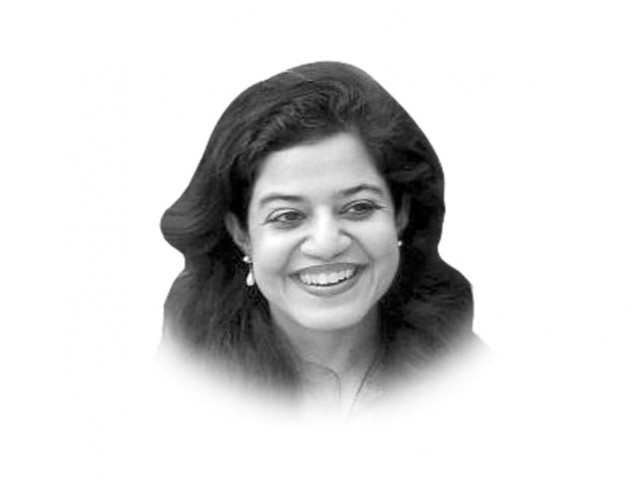Only a slap?
I am dismayed by the barometer with which the Supreme Court appears to gauge the seriousness of events.

Turab made an impassioned plea and even though she did not mention any other civil servant by name, indicated that she was not alone in her outrage. She expressed shock and grief at the blind eye turned by the government of Sindh and its law enforcement agencies at this public humiliation of their colleagues and bemoaned the lot of civil servants whose honour had been compromised at the hands of not merely a member of the public but, in fact, a person aspiring to be elected as the people’s representative. The incorrigible Ms Shah, meanwhile, maintained a cavalier attitude, declaring before the media, that it was, after all, only a slap!
According to Article 184(3) of the 1973 Constitution, under which Turab has filed her petition, the Supreme Court can only take suo motu notice of a matter if it considers “that a question of public importance with reference to any of the Fundamental Rights….is involved”. In the Supreme Court’s view, this slap raised an issue of such grave public concern that it merits its time and immediate attention. The Supreme Court has already held two hearings in a span of 10 days, issued notices to the top brass of Sindh police and perhaps, most interestingly, declared that the slapping is more serious than the killing of a youth at the hands of Rangers in Karachi!
Whilst I fully endorse the intrepid Anita Turab, who has not only risked the wrath of the ruling party, but has also put her career on the line, I am dismayed by the barometer with which the Supreme Court appears to gauge the seriousness of events because, try as I do, I am unable to understand why this incident is more outrageous than an unlawful killing at the hands of the Rangers. I am also apprehensive by the narrow line of inquiry adopted by the Supreme Court so far, which appears to be focused on the treatment of civil servants, and especially, perhaps of women officers, rather than the significantly more important issue raised by the allegation that these election officers were allowing fake votes to be cast at their polling station.
No, please do not get me wrong: a slap is unwarranted, no matter what the circumstances. In fact, I am only sorry that the Election Commission of Pakistan (ECP) has only imposed a two-year ban on Ms Shah, and that, too, on a 3-2 vote, rather than a unanimous one (two commissioners, including the chairperson, were against the disqualification). My only concern is that in failing to order a thorough investigation of the events that led to the slap, the Supreme Court may unwittingly overlook the basis of the allegation and thereby compromise the transparency of the electoral process.
I wonder also, if in determining the rights of the civil service, the Supreme Court will remind it of its duties. The derogatory attitude adopted by even the lowest cadre of civil servants towards ordinary members of the public, who suffer the misfortune of having to deal with them, is no secret. Where is their honour when it comes to accepting petty bribes? Where is it when they shout at obviously under-privileged citizens or when they make them wait endlessly for a mere audience? Where is it when they indulge in blatant nepotism? Perhaps, this is an opportunity for civil servants, at all levels, to take a long, hard look at themselves and to realise that the respect, honesty and impartiality they rightly demand from politicians is also owed to the ordinary citizens of this country.
Published in The Express Tribune, March 14th, 2012.















COMMENTS
Comments are moderated and generally will be posted if they are on-topic and not abusive.
For more information, please see our Comments FAQ